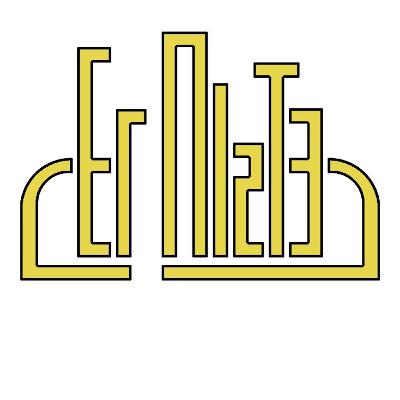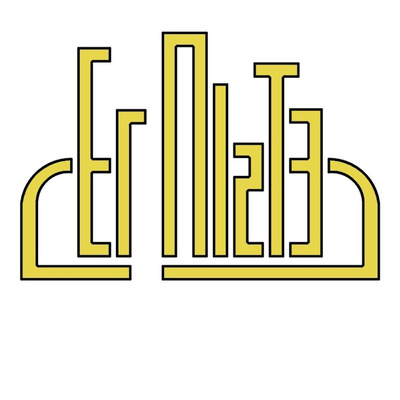Discover Learning at Der Nister
Learning at Der Nister

19 Episodes
Reverse
Rabbi Ye'ela Rosenfeld, speaking from Der Nister, looks at how we view time, as a way to mix experiences or keep them separate, through a debate between Kohelet (Ecclesiastes and Yehuda Amichai). The debate is inspired by Parshah Emor. This video is a supplement to Rabbi Rosenfeld's parshah column, which you can find on https://www.dernister.org/newsletter-... or in our newsletter.
Rabbi Ye'ela Rosenfeld, speaking from Der Nister, looks at how the Shmitah year, the year of letting fields stay fallow, is related to Rilke's advice on how to be courageous in uncertainty. This video is a supplement to Rabbi Rosenfeld's parshah column, which you can find on https://www.dernister.org/newsletter-columns or in our newsletter.#rilke #jewish #philosophy #parshah
Professor Kalman Weiser (York University) talks with Miri Koral (UCLA) about the origins of Ashkenazic names and interesting stories about how difficult those names could be for their bearers in Eastern Europe. This talk was co-sponsored by the Toronto UJA Committee for Yiddish, California Institute for Yiddish Language and Culture, and Der Nister, and is the first of three in this series.
Josh Kogan, author of The Story of the Jews of Mexico, takes us on a tour of Mexican Jewish history. Spanning five centuries, Mexican-Jewish history stretches from Jews escaping the Inquisition, joining the conquest of Cortes, to the establishment of four different Jewish communities at the turn-of-the-century, who had to learn to unite.
Yvonne Winer teaches about the spiritual visions of justice in three completely different religions traditions that she immersed herself in: Mahayana Buddhism in China, Shamanism in the Amazon of Colombia, and Kabbalistic Midrashot in Israel. Each of these traditions, in their own ways, stands firmly against the normal conceptions of Western thought.
Rabbi Zach Golden discusses the medieval Andalusian poet and philosopher Solomon ibn Gabirol, and how he took the intellectual speculation of the cosmos and made it become a spiritual discipline.
Leon Kraiem teaches us about the life and work of the late Tunisian-Jewish philosopher Albert Memmi, and what he has to say about the discourse surrounding oppression through colonization, and where the Jews are in all of it.
Brett Kopin teaches us about Saba, Rabbi Yisroel Dov Ber Odesser, who took the relatively unknown teachings of Rabbi Nachman and popularized them the world over.
Rabbi Ye'ela Rosenfeld, speaking from Der Nister, weighs Dante Alighieri's dim view of lust againstthat of the Sefat Emet, in relation to parshah Beha'alotcha. This video is a supplement to Rabbi Rosenfeld's parshah column, which you can find on https://www.dernister.org/newsletter-columns or in our newsletter.#dante #jewish #philosophy #parshah
Rabbi Ye'ela Rosenfeld, speaking from Der Nister, breaks down the idea of Rousseau's General Will and suggests an improvement to it in the form of the Ben Ish Chai's insight on the parshah Bamidbar. This video is a supplement to Rabbi Rosenfeld's parshah column, which you can find on https://www.dernister.org/newsletter-columns or in our newsletter.#rousseau #jewish #philosophy #parshah
Rabbi Ye'ela Rosenfeld, speaking from Der Nister, connects the observations of sociologist Emile Durkheim on religion to parshah Naso. This video is a supplement to Rabbi Rosenfeld's parshah column, which you can find on https://www.dernister.org/newsletter-columns or in our newsletter.#durkheim #jewish #philosophy #sociology #parshah
Panui's Rabbi Aubrey Glazer and Dr. Elyssa Wortzman and Der Nister's Rabbi Zach Golden speak with translator Dr. Nathan Wolski, artist Tunni Kraus, and members of the band The Bashevis Singers — Evie Gawenda, Husky Gawenda and Gideon Preiss on the occasion of the online launch of Dr. Wolski's translation of Der Nister's epic poem.
Zach Golden and Kultur Mercado founder Aaron Castillo-White discuss the big-picture cultural theories that explain how the descendants of immigrants become attracted to languages and cultures that their ancestors abandoned to order to explain the resurgence of Yiddish.
Readers of our newsletter may be familiar with Joelle Milman, our poet-in-residence of 2022. She wrote a weekly poem in response to the weekly haftarah (prophetic) portion as an ongoing epic. In these poems, she transports us to a surreal world where the character she creates struggles with, for, and against God in direct thematic conversation with the language and story of the weeks’ reading.
Joelle reads selections of her work, explains her writing process, and explores her inspirations for it with Rabbi Zach Golden, followed by a Q and A. Joelle is from LA and lives in Tel Aviv, where she is writing her MA thesis on the mystic element in Mina Loy’s poetry at Hebrew University in Jerusalem. She is joining the team at Breaking the Silence, an Israeli peace advocacy organization.
Henry Hollander speaks with Ziegler School of Rabbinic Studies Talmud professor Rabbi Dr. Aryeh Cohen about his book Justice in the City. The wide-ranging conversation touches on Rabbi Cohen's intellectual and political development in New York, Israel, Boston and Los Angeles, and then turns towards social problems in Los Angeles and socially just strategies to address them.
Jana Mazurkiewicz is a scholar of Yiddish theater and founder of Yiddishland California in La Jolla. She joins Rabbi Zach Golden at Der Nister for an interview about her life and work in his capacity as Deputy Yiddish Editor at the Forward, for an upcoming article.
Director of the YIVO Archives Stefanie Halpern shares the harrowing journey of YIVO’s pre-war collections and the cutting-edge technologies used to digitize them, in conversation with Miri Koral (UCLA). This talk was co-sponsored by the Toronto UJA Committee for Yiddish, California Institute for Yiddish Language and Culture, and Der Nister.
Professor Kalman Weiser (York University) talks with Miri Koral (UCLA) about Yiddish reaching the university and what it means for Yiddish. This talk was co-sponsored by the Toronto UJA Committee for Yiddish, California Institute for Yiddish Language and Culture, and Der Nister, and is the third of three in this series.
Professor Kalman Weiser (York University) talks with Miri Koral (UCLA) about the theories of the origins of Yiddish and their political undertones. This talk was co-sponsored by the Toronto UJA Committee for Yiddish, California Institute for Yiddish Language and Culture, and Der Nister, and is the second of three in this series.






